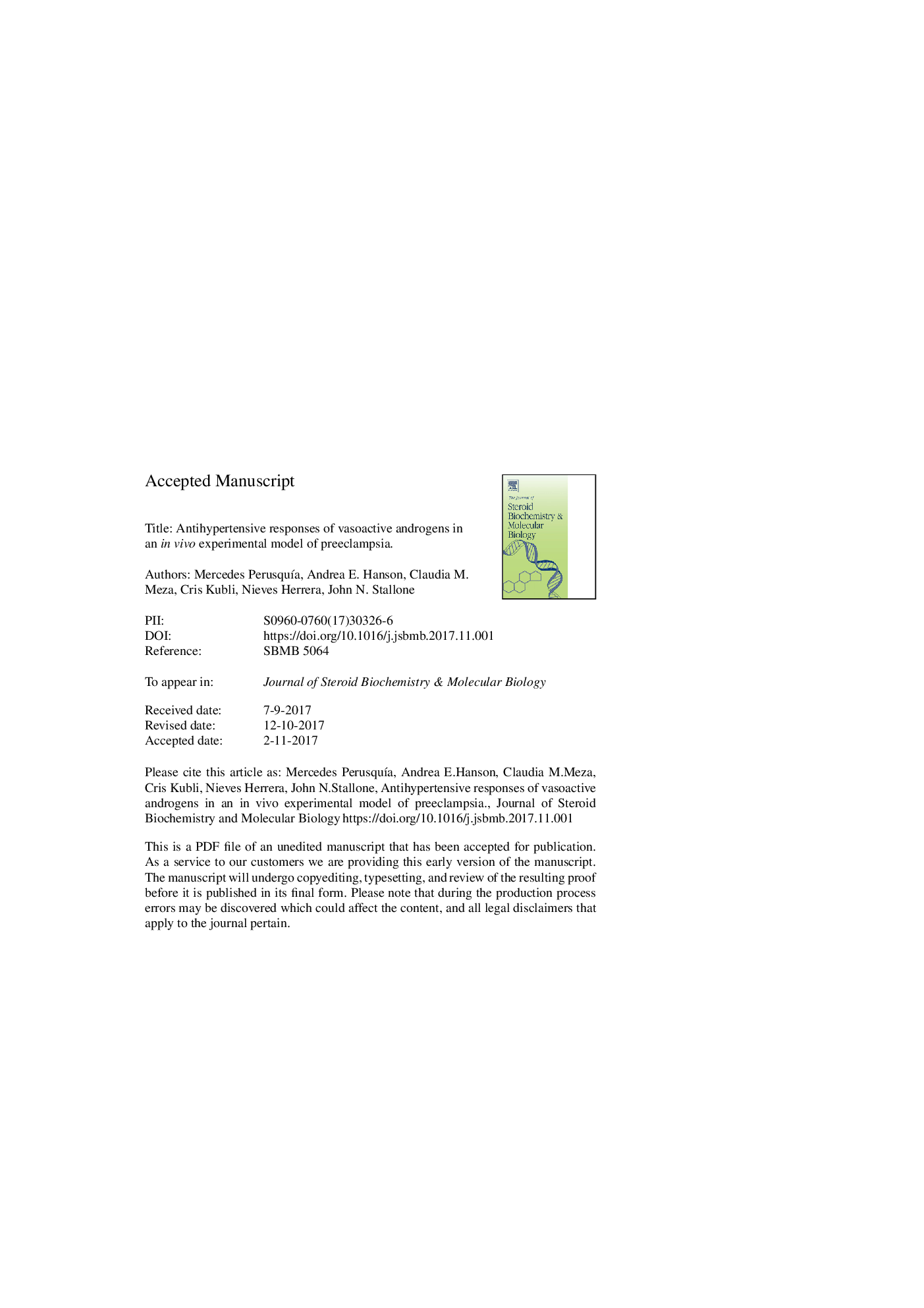| Article ID | Journal | Published Year | Pages | File Type |
|---|---|---|---|---|
| 8337832 | The Journal of Steroid Biochemistry and Molecular Biology | 2018 | 35 Pages |
Abstract
Dehydroepiandrosterone (DHEA), testosterone (TES) and its 5-reduced metabolites induce a nongenomic vasorelaxation in several vascular beds of mammals; similarly these hormones produce systemic hypotensive and antihypertensive responses in normotensive and hypertensive male rats. Thus, it was hypothesized that the antihypertensive response of androgens, whose levels are elevated during gestation, protect against gestational hypertension. An animal model of preeclampsia was induced in female Wistar rats using DOCA-salt-treated pregnant (PT) and normal pregnant (NP) rats. In vivo experiments in conscious rats revealed that bolus intravenous injections of DHEA, TES, 5α- or 5β-dihydrotestosterone (-DHT) log â1.0 to 2.0 μmol kâ1 minâ1, produced substantial transient reductions in arterial blood pressure (BP), without significant changes in heart rate (HR). Mean arterial blood pressure (MAP) was reduced significantly in both groups. PT rats were more sensitive to the antihypertensive responses of androgens than NP. DHEA and 5β-DHT were the most potent to reduce MAP: 66 ± 07 and 69 ± 2.0 mmHg in PT but only 33 ± 0.5 and 35 ± 1.2 mmHg in NP rats, respectively. In isolated aortas of PT and NP, the concentration-response curves to each androgen (0.1-100 μM) indicated that KCl-induced pre-contraction is more sensitive to all androgens than phenylephrine (Phe) pre-contractions. Notably, 5β-DHT is the greatest vasorelaxant with KCl-induced contraction than with Phe contraction of both groups, suggesting a preferential blockade on L-VOCCs. TES exhibited minor vasorelaxing effect of aortas pre-contracted with KCl, compared to its precursor DHEA and its 5-reduced metabolites. These data show that these androgens exert acute vasorelaxing effects in vitro and remarkably, reduce the BP in vivo in PT and NP at term pregnancy. Moreover, a deficit in feto-placental androgen production during pregnancy may trigger the development of preeclampsia or gestational hypertension.
Keywords
DOCADHEA5α-DHTEmaxED50dehydroepiandrosteronePHESBPTESDBP5α-Dihydrotestosteroneandrogensmaximal effecttestosteronedeoxycorticosterone acetateeffective dose 50Heart rateHypertensiondiastolic blood pressuresystolic blood pressuremean arterial blood pressureBlood pressurephenylephrinemapPreeclampsiaAndrogen Receptor
Related Topics
Life Sciences
Biochemistry, Genetics and Molecular Biology
Biochemistry
Authors
Mercedes PerusquÃa, Andrea E. Hanson, Claudia M. Meza, Cris Kubli, Nieves Herrera, John N. Stallone,
